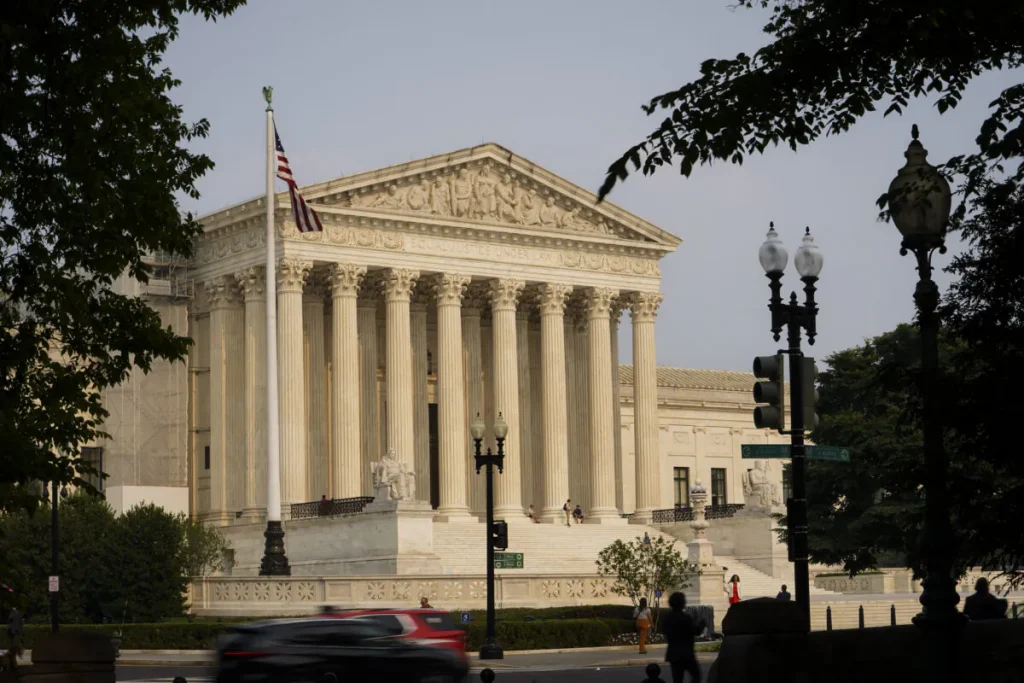The Supreme Court resurrected two whistleblower lawsuits against companies for allegedly defrauding Medicare and Medicaid.
The cases concern the federal False Claims Act (FCA), a key tool the government uses to combat health care fraud, and “scienter,” a legal term meaning prior intent or knowledge of wrongdoing.
Sen. Charles Grassley (R-Iowa) has called the FCA “the centerpiece of the government’s anti-fraud arsenal.”
That ruling, United States ex rel. Schutte v. SuperValu, held that the scienter requirement under the False Claims Act, which asks whether an accused party “knowingly” filed a “false” claim with the government, refers to the party’s knowledge and subjective beliefs, as opposed to what an objectively reasonable person may have believed.
Sometimes called the Lincoln Law, the FCA was enacted in 1863 to deal with defense contractor fraud during the Civil War.
The act currently provides that anyone who knowingly files false claims with the government is liable for triple damages plus a $2,000 penalty for each false claim.
The FCA allows the government to pursue perpetrators on its own and for private citizens to sue those who defraud the government on behalf of the government in what are known as qui tam suits. Such private citizens, who are called relators, may be awarded part of what the government recovers.
To prove scienter under the statute, the government or the whistleblower must demonstrate that the company acted “knowingly,” or with “reckless disregard,” or “deliberate ignorance” of the law in question.
On June 30, in Olhausen v. Arriva Medical LLC and United States ex rel. Sheldon v. Allergan Sales LLC, the Supreme Court summarily granted the petitions of two whistleblowers while at the same time skipping over the oral argument phase when the merits of the case would have been considered.
The court issued unsigned orders in the two cases in a flurry of eleventh-hour rulings as it wrapped up its regular term and recessed for the summer. The court did not explain why it made the two new decisions. No justices dissented.
At the same time, the court vacated the judgments of the U.S. Court of Appeals for the 11th Circuit in Olhausen and of the U.S. Court of Appeals for the 4th Circuit in Sheldon, remanding those respective cases to those lower courts in light of its decision last month in United States ex rel. Schutte v. SuperValu.
Lawyers call this process GVR, which stands for grant, vacate, and remand.
In the first case, whistleblower Troy Olhausen brought an FCA action on behalf of the government against Florida-based Arriva and its parent companies, which supply mail-order diabetic testing supplies, orthotic braces, heating pads, and other devices, according to his petition (pdf). One of Arriva’s parent companies is Illinois-based Abbott Laboratories Inc.
Mr. Olhausen claimed that Arriva falsely certified compliance with legal requirements and made false statements to the Centers for Medicare and Medicaid Services so it could secure government contracts to supply medical items to Medicare beneficiaries. He alleged that Arriva’s false statements centered on “impermissibly channeling some of its functions as a government-contract supplier through undisclosed locations and/or an unauthorized subcontractor,” and failing to obtain required assignment of benefits from beneficiaries for certain items.
In 2012, Arriva bought Mr. Olhausen’s company, another supplier of diabetic-testing supplies and equipment. He stayed on at Arriva in a senior post after the acquisition and became aware that Arriva was breaking the law.
Mr. Olhausen filed a six-count qui tam lawsuit under the FCA in federal court in Florida. Arriva moved to dismiss, arguing that he could not meet the law’s “objective knowledge standard.”
The district court dismissed the complaint but did not reach the issue of scienter. An 11th Circuit panel affirmed the dismissal, and then the full circuit court upheld that ruling without providing an explanation.
Olhausen’s attorney, Stephen Rosenthal of Podhurst Orseck in Miami, welcomed the new ruling.
“The U.S. Supreme Court has vindicated our client’s right to continue prosecuting his claim that these companies fraudulently billed Medicare,” Mr. Rosenthal told The Epoch Times by email.
“The court has made clear that they cannot escape liability by hiding behind after-the-fact interpretations of federal laws that Mr. Olhausen alleged they knew they were violating when they submitted claims for payment.”
The Epoch Times reached out to Arriva attorney John O’Quinn of Kirkland and Ellis in Washington but had not received a reply as of press time.
In the second case, whistleblower Deborah Sheldon brought an FCA action on behalf of the government against California-based Allergan Sales, alleging the company intentionally violated the Medicaid Rebate Statute, which requires drug manufacturers to report to the government their drugs’ “best price,” meaning the “lowest price … inclusive of all rebates, discounts, and other price concessions given to any entity or entities.”
The statute was enacted to make sure the manufacturers did not profit more from selling prescription drugs to the government than they did from selling the same prescription drugs to private concerns, according to Sheldon’s petition (pdf).
Sheldon sued in federal court in Maryland, claiming the company failed to fulfill its best-price obligations. While the lawsuit was still in the pleadings stage, the company moved to dismiss, and the court granted the motion but erroneously applied precedent, according to Sheldon. A panel of the 4th Circuit affirmed the lower court.
Sheldon sought a rehearing before the full circuit court, and the government backed her request. The court reheard the case and vacated the panel opinion. Then, after oral argument, the court failed to come to a consensus and deadlocked in a tie vote, which left the district court’s dismissal of the complaint intact, “thereby leaving the law unsettled with no governing standard.”
The Epoch Times reached out for comment to Sheldon’s attorney, Gregory Utter of Callow and Utter in Cincinnati and Allergan attorney John Elwood of Arnold and Porter Kaye Scholer in Washington, but had not received a reply from either of them at the time of publication.



